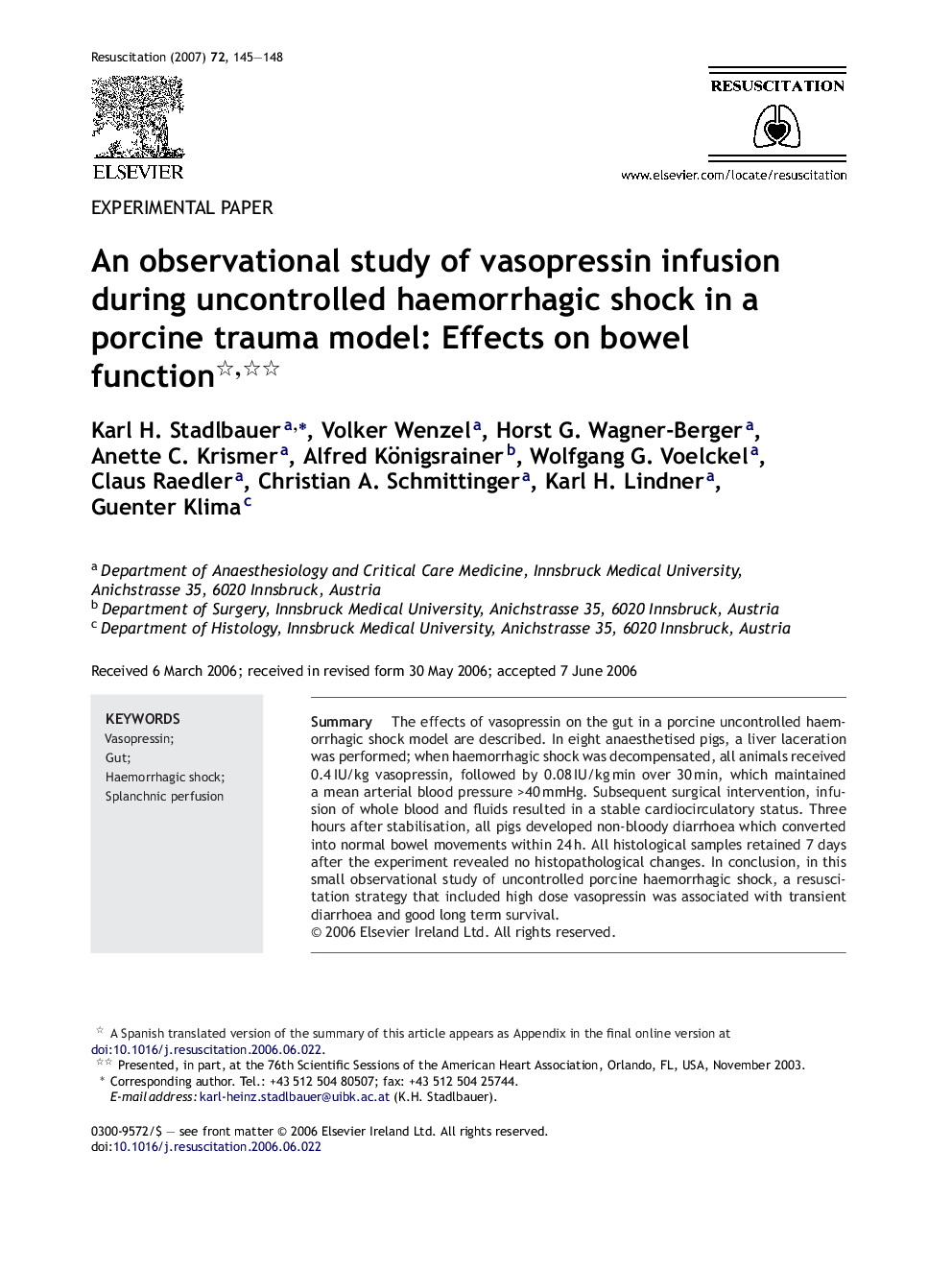| Article ID | Journal | Published Year | Pages | File Type |
|---|---|---|---|---|
| 3010839 | Resuscitation | 2007 | 4 Pages |
Abstract
The effects of vasopressin on the gut in a porcine uncontrolled haemorrhagic shock model are described. In eight anaesthetised pigs, a liver laceration was performed; when haemorrhagic shock was decompensated, all animals received 0.4 IU/kg vasopressin, followed by 0.08 IU/kg min over 30 min, which maintained a mean arterial blood pressure >40 mmHg. Subsequent surgical intervention, infusion of whole blood and fluids resulted in a stable cardiocirculatory status. Three hours after stabilisation, all pigs developed non-bloody diarrhoea which converted into normal bowel movements within 24 h. All histological samples retained 7 days after the experiment revealed no histopathological changes. In conclusion, in this small observational study of uncontrolled porcine haemorrhagic shock, a resuscitation strategy that included high dose vasopressin was associated with transient diarrhoea and good long term survival.
Related Topics
Health Sciences
Medicine and Dentistry
Cardiology and Cardiovascular Medicine
Authors
Karl H. Stadlbauer, Volker Wenzel, Horst G. Wagner-Berger, Anette C. Krismer, Alfred Königsrainer, Wolfgang G. Voelckel, Claus Raedler, Christian A. Schmittinger, Karl H. Lindner, Guenter Klima,
